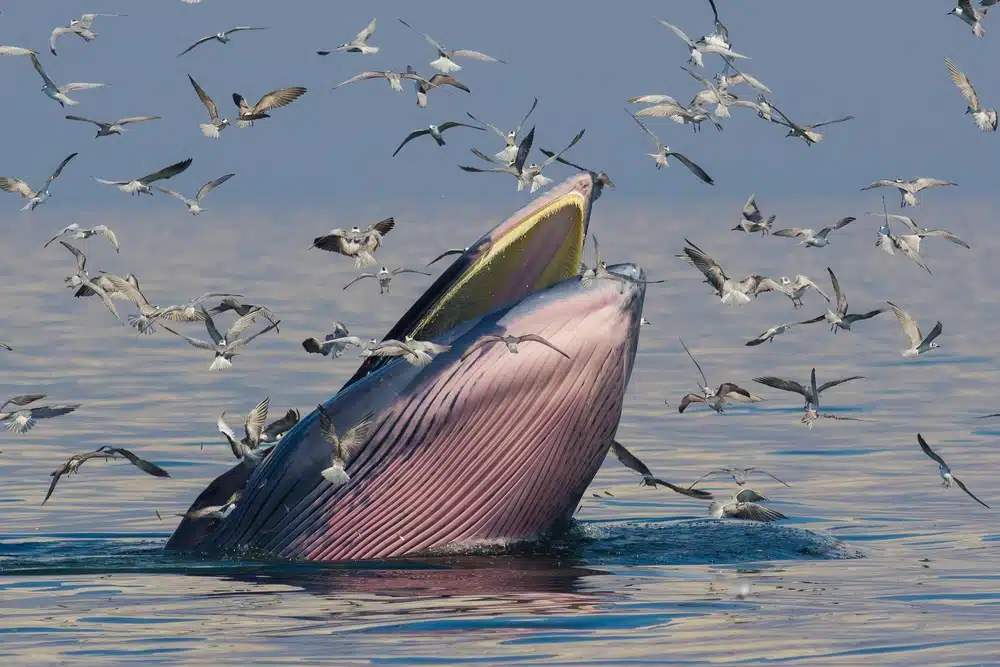Congress passed the Endangered Species Act (ESA) in 1973 to protect endangered species and their habitats. Today, the ESA remains one of the strongest tools in place to protect vulnerable species, like gray wolves and grizzly bears, from the harmful industries destroying our planet.
Part of the ESA directs all federal agencies to help conserve species and ensure their activities don’t further jeopardize them or their habitats. “Biological opinions” are assessments that are then created to analyze how these agency actions might impact species and recommend ways to minimize harm.
In 2020, Friends of the Earth joined Earthjustice, Sierra Club, Center for Biological Diversity and Turtle Island Restoration Network to sue the The National Marine Fisheries Service (NMFS) over its outdated biological opinion on the impacts of oil and gas drilling on marine species in the Gulf of Mexico.
Offshore drilling poses a massive threat to these endangered species. The Rice’s whale — one of the world’s rarest whales — lost about 20 percent of its population due to the Deepwater Horizon disaster. Today, there are fewer than 100 of these whales left, a sobering reminder of the true costs of oil and gas activity.
Our lawsuit argued that NMFS greatly underestimated the likelihood of future oil spills in the Gulf and didn’t sufficiently safeguard vulnerable species, like the Rice’s whale and loggerhead sea turtles, from the environmental harms of offshore drilling.
In a massive win, a federal judge agreed that the agency’s biological opinion violates federal law and the ESA. The court stated that NMFS wrongly assumed another catastrophic oil spill like the BP’s Deepwater Horizon in 2010 was unlikely. The court also corrected NMFS’ stance that marine species weren’t harmed due to Deepwater Horizon and wouldn’t be harmed in the future. Now, NMFS must go back to the drawing board and reassess harm in a new biological opinion.
The court’s decision is a huge victory for groups’ ongoing efforts to protect the Gulf’s vulnerable species, especially the Rice’s whale. It will help prevent thousands of marine animals from being sacrificed to Big Oil and push the agency to truly account for the devastating impacts drilling has on the region’s wildlife.
But our work is not over. Friends of the Earth will stay vigilant to ensure that officials comply with federal laws, especially the ESA, as they rework this important biological opinion. We will not hesitate to fight back if industry, or oil-funded politicians, try to get in the way.
Every time the oil and gas industry drills, it comes at the expense of our planet’s precious species. Friends of the Earth will keep fighting against those who seek to endanger the planet and endangered species for the sake of corporate profit.
